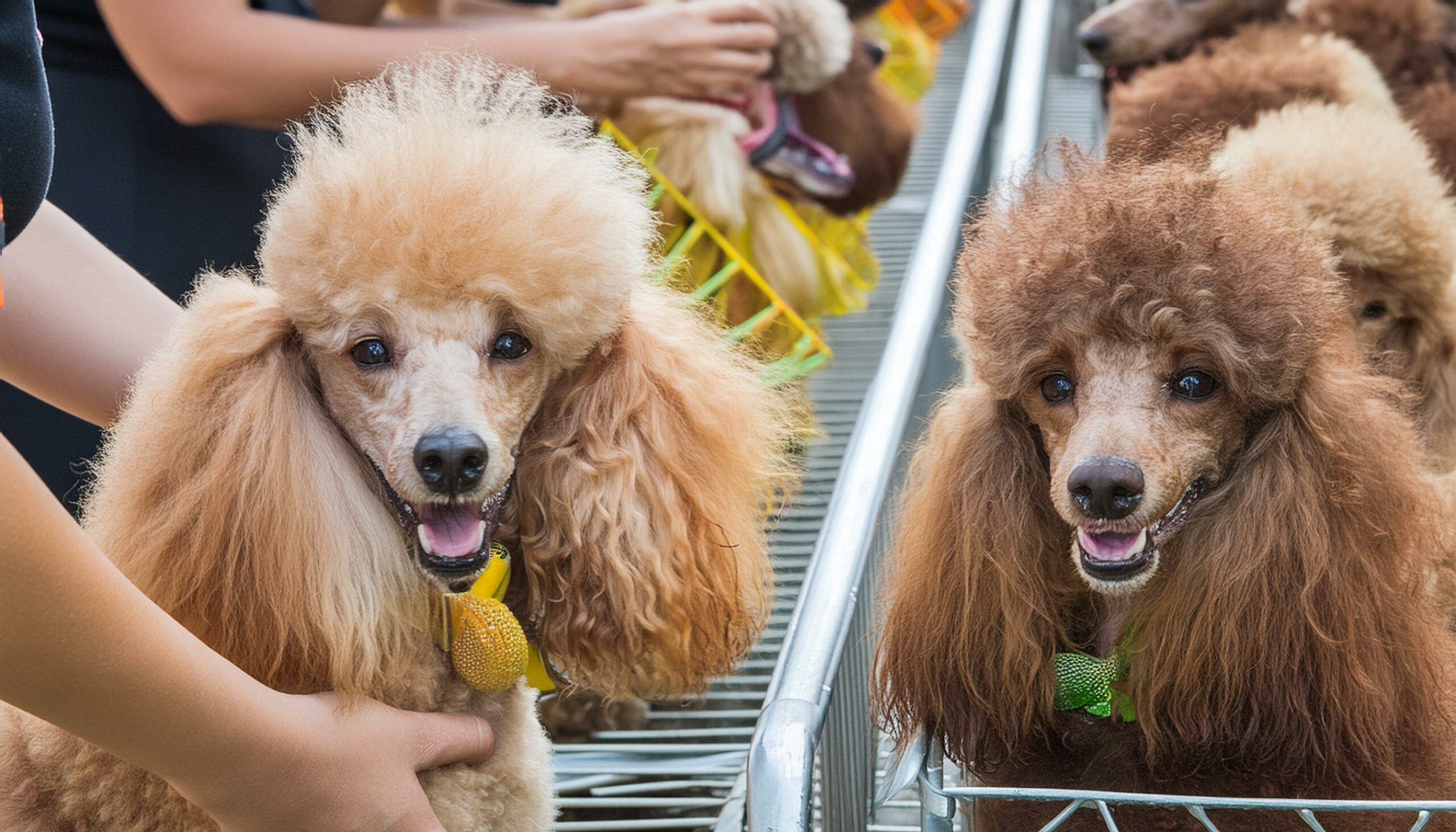Poodles, with their elegant appearance and playful demeanor, are beloved companions for many households. However, behind their charming facade lies a sensitivity that requires understanding and care from their owners. From food to environmental stimuli, Poodles can exhibit sensitivity to various factors, impacting their overall well-being and behavior.
Understanding Poodle Sensitivity
Poodle sensitivity encompasses a range of factors influenced by both genetic predispositions and environmental influences.
Genetic Factors
Poodles inherit certain genetic traits from their lineage, which can predispose them to sensitivities. Genetic factors can influence a Poodle’s susceptibility to allergies, intolerances, and other sensitivities. Understanding the breed’s genetic makeup can provide insights into potential sensitivities and help owners make informed decisions about their care.
Environmental Influences
Beyond genetics, environmental factors play a significant role in shaping a Poodle’s sensitivity. Factors such as noise levels, changes in routine, and household dynamics can affect a Poodle’s emotional state and overall well-being. Being attuned to environmental cues is crucial for recognizing and addressing sensitivities in Poodles.
Common Sensitivities in Poodles
Poodles are known for their sensitive nature, with certain sensitivities being more prevalent in the breed.
Food Sensitivities
One of the most common sensitivities in Poodles is food allergies or intolerances. Ingredients such as grains, poultry, and artificial additives can trigger adverse reactions in sensitive individuals. Symptoms of food sensitivities may include itching, gastrointestinal upset, or skin rashes. Identifying and eliminating potential allergens from their diet is essential for managing food sensitivities in Poodles.
Skin Sensitivities
Poodles’ luxurious coats require regular grooming, but they are also prone to skin sensitivities. Sensitivities to grooming products, environmental allergens, and parasites can lead to itching, redness, and discomfort. Using gentle, hypoallergenic grooming products and maintaining a consistent grooming routine can help alleviate skin sensitivities and keep the Poodle’s coat healthy and shiny.
Noise Sensitivity
Poodles are often sensitive to loud noises, such as thunderstorms, fireworks, or household appliances. This sensitivity can manifest as anxiety or fear, causing distress for the dog. Providing a safe, quiet space during noisy events and using calming techniques, such as music or pheromone diffusers, can help ease their anxiety and create a sense of security.
Separation Anxiety
Due to their loyal and affectionate nature, Poodles can be prone to separation anxiety. Being left alone for extended periods can trigger distress behaviors, such as excessive barking, destructive chewing, or house soiling. Building a gradual desensitization plan and providing mental stimulation during absences can help reduce separation anxiety and promote a sense of independence in Poodles.
Managing Poodle Sensitivities

Managing Poodle sensitivities requires a multifaceted approach that addresses their unique needs and vulnerabilities.
Proper Nutrition
Choosing high-quality, hypoallergenic food tailored to the Poodle’s specific dietary needs is essential for preventing food sensitivities. Avoiding common allergens and consulting with a veterinarian for dietary recommendations can ensure optimal nutrition and digestive health.
Grooming and Skin Care
Regular grooming sessions with gentle, non-irritating products are essential for maintaining the Poodle’s coat and skin health. Trimming hair around sensitive areas, such as the ears and paw pads, can prevent irritation and discomfort. Additionally, using flea and tick preventatives can protect against external parasites and reduce the risk of skin sensitivities.
Desensitization Training
Gradual exposure to triggers, such as loud noises or being alone, can help desensitize Poodles to stimuli that cause anxiety or fear. Implementing positive reinforcement techniques and creating a calm, predictable environment can build confidence and resilience in sensitive dogs.
Emotional Support
Providing a supportive and nurturing environment is crucial for addressing the emotional needs of sensitive Poodles. Spending quality time together, engaging in interactive play, and offering reassurance during stressful situations can strengthen the bond between owner and dog and promote emotional well-being.
Conclusion
In conclusion, understanding and addressing Poodle sensitivities are essential for ensuring the health and well-being of these beloved companions. By recognizing common sensitivities such as food allergies, skin issues, noise aversion, and separation anxiety, owners can provide the necessary care and support to help their Poodles thrive.
FAQs
How can I tell if my Poodle is sensitive to certain foods?
Look for symptoms such as itching, gastrointestinal upset, or skin rashes after eating. Consult with your veterinarian for allergy testing and dietary recommendations.
Are Poodles more prone to separation anxiety than other breeds?
Poodles, with their loyal and affectionate nature, can be predisposed to separation anxiety. However, individual temperament and past experiences also play a significant role.
What grooming products are best for sensitive Poodle skin?
Opt for hypoallergenic shampoos and conditioners formulated for dogs with sensitive skin. Avoid products containing harsh chemicals or fragrances that may exacerbate skin sensitivities.
Can noise sensitivity in Poodles be overcome with training?
Yes, desensitization training techniques can help gradually acclimate Poodles to loud noises and reduce their anxiety response over time.
Is separation anxiety in Poodles a sign of a behavioral problem?
While separation anxiety is a common issue in sensitive breeds like Poodles, it is not indicative of a behavioral problem. With patience and consistency, separation anxiety can be managed effectively.
